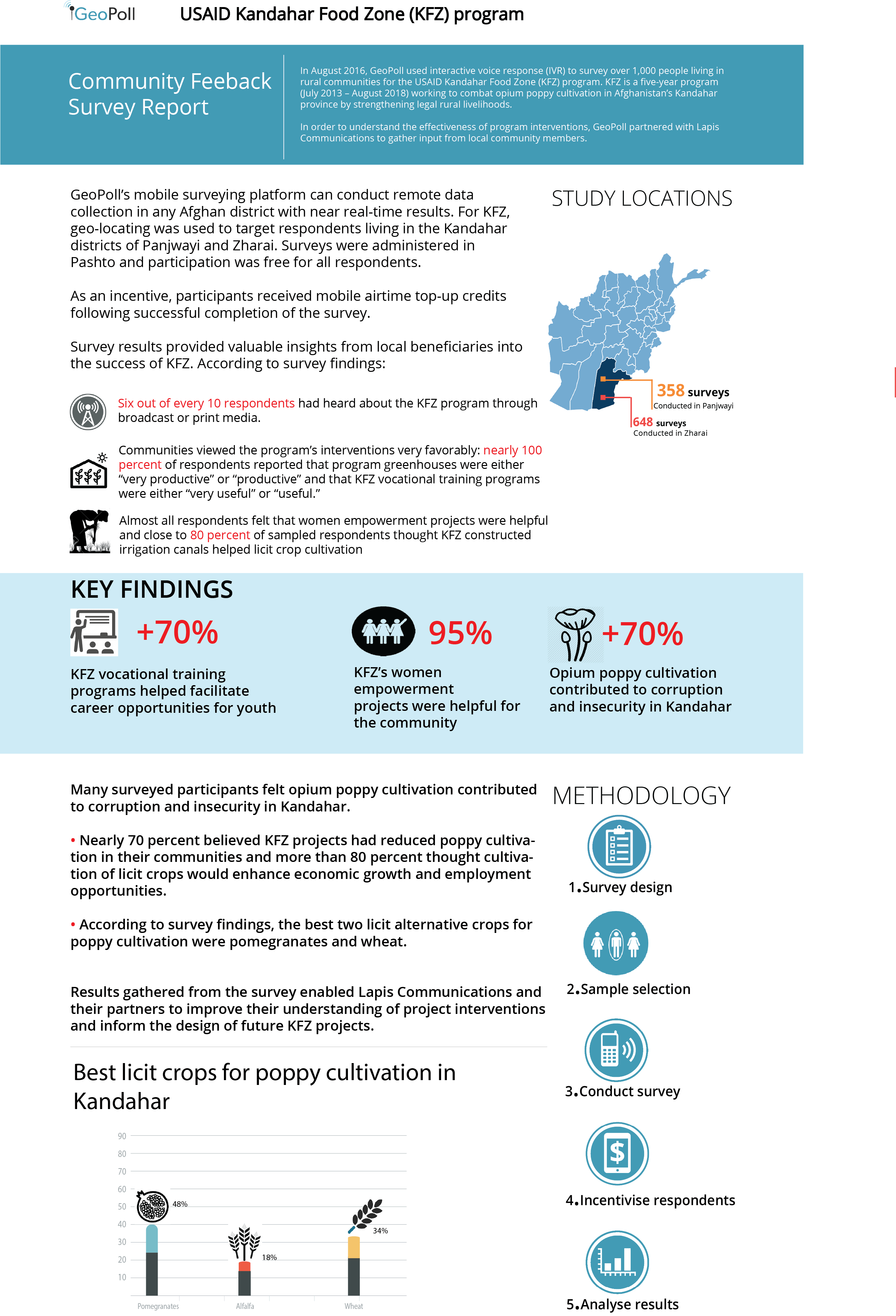- Contents
In August 2016, GeoPoll used interactive voice response (IVR) to survey over 1,000 people living in rural communities for the USAID Kandahar Food Zone (KFZ) program. KFZ is a five-year program (July 2013 – August 2018) working to combat opium poppy cultivation in Afghanistan’s Kandahar province by strengthening legal rural livelihoods. In order to understand the effectiveness of program interventions, GeoPoll partnered with Lapis Communications to gather input from local community members
GeoPoll’s mobile surveying platform can conduct remote data collection in any Afghan district with near real-time results. For KFZ, geo-locating was used to target respondents living in the Kandahar districts of Panjwayi and Zharai. Surveys were administered in Pashto and participation was free for all respondents. As an incentive, participants received mobile airtime top-up credits following successful completion of the survey.
Survey results provided valuable insights from local beneficiaries into the success of KFZ. According to survey findings:
- Six out of every 10 respondents had heard about the KFZ program through broadcast or print media.
- Communities viewed the program’s interventions very favorably: nearly 100 percent of respondents reported that program greenhouses were either “very productive” or “productive” and that KFZ vocational training programs were either “very useful” or “useful.”
- Almost all respondents felt that women empowerment projects were helpful and close to 80 percent of sampled respondents thought KFZ constructed irrigation canals helped licit crop cultivation
Many surveyed participants felt opium poppy cultivation contributed to corruption and insecurity in Kandahar.
- Nearly 70 percent believed KFZ projects had reduced poppy cultivation in their communities and more than 80 percent thought cultivation of licit crops would enhance economic growth and employment opportunities.
- According to survey findings, the best two licit alternative crops for poppy cultivation were pomegranates and wheat.
Results gathered from the survey enabled Lapis Communications and their partners to improve their understanding of project interventions and inform the design of future KFZ projects.

